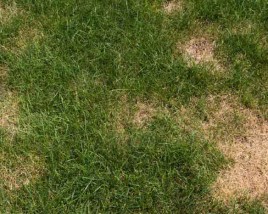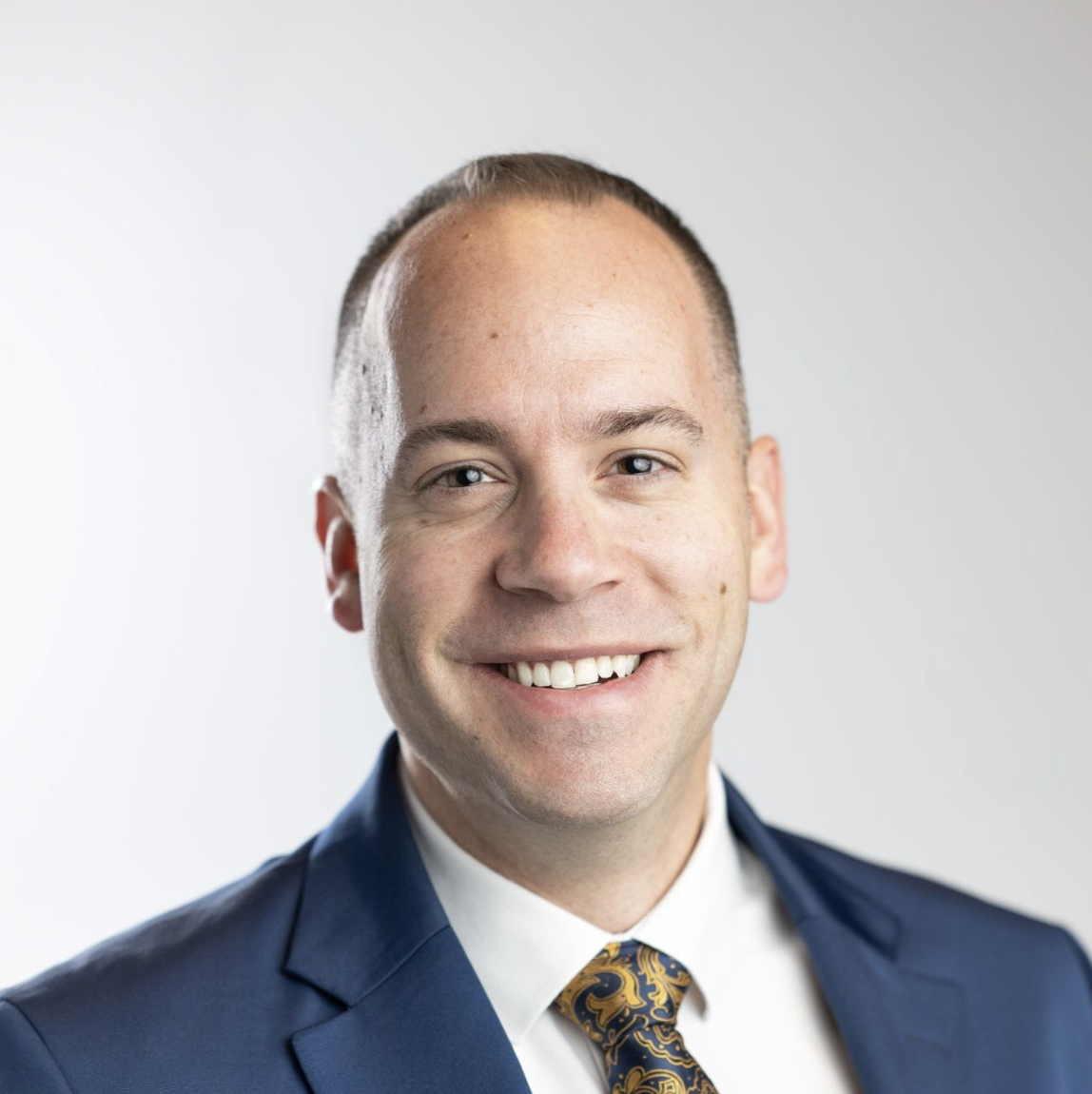Brown Patch: Those Mysterious Spots on Your Lawn

Brown patch is a fungal lawn disease that thrives in humidity and shade. Caused by the fungus Rhizoctonia solani, it creates temporary discolorations and potentially permanent damage if left untreated. Do you suspect brown patch might be affecting your lawn? Here’s how to identify and treat this destructive disease.
Identification
There are a few ways to inspect your lawn:
- Living up to its name, brown patch reveals itself as brown circles (or patches) of thinning or dead grass encircled by a darker ring. These circular patches can grow from a few inches to a few feet in diameter.
- When looking up-close, the disease often shows up as tan spotting with darker brown outlines on grass blades. These spots start to bleed together to turn the entire blade brown.
Treatment
It’s important to act immediately to stop the disease from spreading. Contact fungicide is your best option for treatment. Look for a liquid fungicide instead of a granular formula for a more effective application. Most fungicides are available at home improvement and garden supply stores, but a few of the more powerful varieties must be applied by a professional lawn technician. Apply the fungicide continuously during periods of high humidity.
Prevention
Moisture of any kind makes your lawn more susceptible. There are a few other things to look out for, as well:
- Keep grass dry by watering your lawn in the early morning to avoid wet grass at night.
- Fertilize, dethatch, and aerate your soil on a regular basis.
- Use a low-nitrogen fertilizer and do not fertilize in extended periods of rainy, moist weather.
- Mow frequently to encourage air flow through the grass blades. This helps your grass dry faster.
Remember:
Fast-release fertilizers that are high in nitrogen promote the disease’s spread. Try using a slow-release fertilizer with less nitrogen mixed in.
Need Help Banishing Brown Patch?
For further assistance in preventing lawn diseases like brown patch, contact Green Lawn Fertilizing at 855-469-0692. Call us today for a free consultation and for more info about our fungicide program.

About The Author
Ryan Petitti is the Director of Technical Operations & Quality Assurance at Green Lawn Fertilizing. He holds a Bachelor of Science in Plant Sciences from Rutgers University, bringing deep agronomic expertise to technician development, program optimization, and customer success.